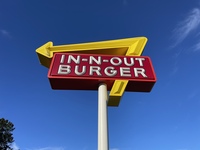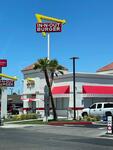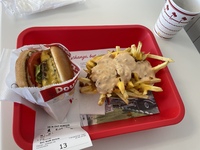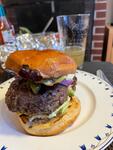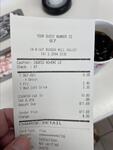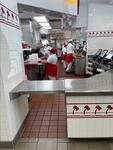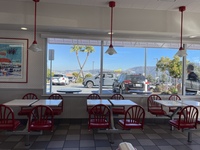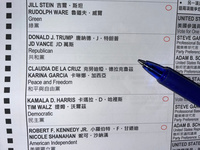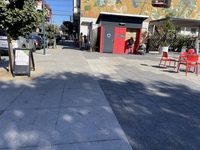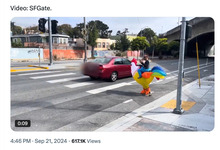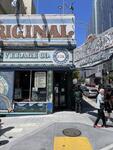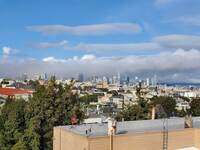 |
| Angelika/Mike Schilli |
|
Michael When it comes to burger joints in America, there is sort of a three-tier system. If you order a burger in regular restaurants, let's say at a pub named "Cactus Jack's Bar and Grill," you often get a thicker ground beef patty on a "Brioche-Bun" a still somewhat way too fluffy roll, but with a slightly cake-like structure and a golden-brown sheen. In upscale establishments, the ground meat is often a freshly minced half-pounder, and you can (and should) order the burger "medium," if not even "medium rare." However, the galloping inflation has led to such a dish a) now costing 20 dollars and b) because it should actually cost more than 30 dollars, but no one would pay that much for a burger, the patties are getting thinner and thinner.
Then there's the class of run-of-the-mill restaurants in the middle of nowhere that offer a burger, but the patties were frozen and taste about 10% better than McDonald's. Additionally, they are nicely arranged on a plate when served at the table.
Let's now turn to the budget category of fast-food restaurants. Chains like McDonald's, Burger King, Jack in the Box, and thousands of other regionally different "restaurants" that are all quite similar, offering cheap but also squashed, soggy buns in typical fast-food quality. The employees there often give the impression of being highly annoyed about having reached the lowest level of the low-wage sector.
At the top end of these fast-food chains is now In-N-Out Burger, a chain with an almost religiously fanatical customer base, who are willing to wait in their cars for half an hour in the drive-through line to order a burger. According to the advertising, the patties on In-N-Out burgers are never frozen, and the whole arrangement is neatly presented on the tray. The price of a burger with two patties and cheese, the so-called Double-Double, is now about 5 dollars. This is much more expensive than McDonald's, but still within a range where a working class man can treat themselves and their families to something special.
What stands out at In-N-Out is that they're running a tight ship, and the employees are zipping around like soldiers. Everything is sparkling clean, and the uniforms are as precise as in the military. At the drive-through, you don't speak your order into some form of intercom; instead, a uniformed employee briskly comes to your car window and asks with determined friendliness about your wishes.
Other franchise chains present a downright tragic picture in comparison. The interior design at In-N-Out is similar to that of other fast-food chains, which Americans, to my surprise, still call a "restaurant" without hesitation. However, even though the design of the furniture at In-N-Out evokes that typical fast-food feeling, one must admit that there is always someone ensuring that messy tables are immediately cleaned, whereas at McDonald's and similar places, there is a certain laxity among the staff in this regard. Only the similarly conservatively managed chain "Chick-fil-A" offers comparable cleanliness.
This may also be due to the fact that In-N-Out pays its employees very well. Long before politicians in San Francisco mandated the minimum wage to be 20 dollars per hour, employees at In-N-Out were already earning over 20 dollars.
The management of the chain has a conservative Christian influence, which can be seen, among other things, in the fact that Bible verses are always printed on the bottom of the drink cups, driving the godless ultra-leftists of San Francisco out of their minds. As a marketing gimmick, the chain also has a "Secret Menu" that is not visible anywhere inside the restaurant, where you can order your fries (or even the burger) "Animal Style," for example. The surprised guest will then find browned onions in a thick sauce on it, which tastes very good but seemingly clogs your arteries in real-time. This secrecy naturally appeals to our fashionable hipsters, who wouldn't want to flaunt their insider knowledge when ordering fast food!
In any case, the chain is a good example that there are indeed functioning business models in the fast-food chain sector. San Francisco's ultra left political class is rubbing their eyes in disbelief that such a thing is possible.
Greetings from the Land of Cockaigne:
Angelika und Michael
